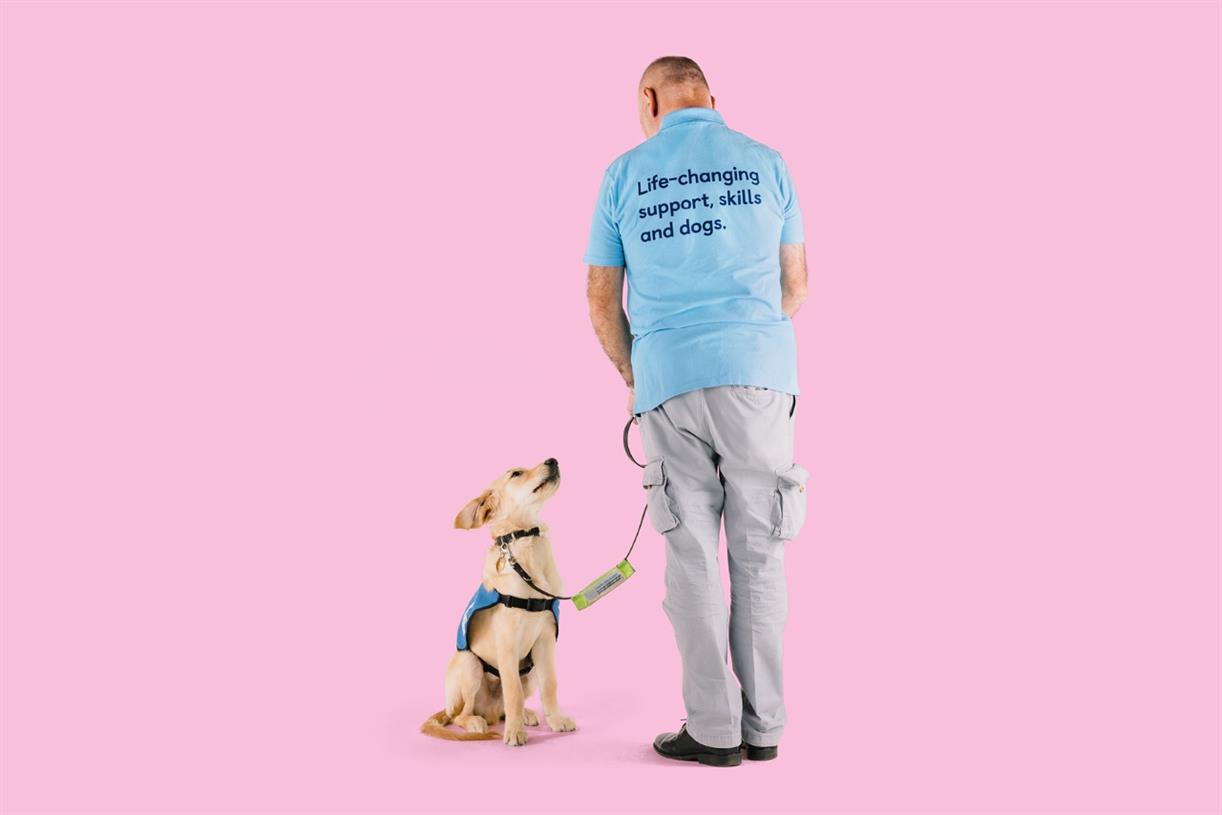12 Ways To Communicate Better In Relationships, From Marriage Therapists
This is *the* guide to good communication in relationships.


Contributing Sex & Relationships Editor
Contributing Sex & Relationships Editor
Kelly Gonsalves is a sex educator, relationship coach, and journalist. She received her journalism degree from Northwestern University, and her writings on sex, relationships, identity, and wellness have appeared at The Cut, Vice, Teen Vogue, Cosmopolitan, and elsewhere.
Image by Jovo Jovanovic / Stocksy May 1, 2023 We’ve likely all heard that trite little truism by now: Communication is key to a healthy relationship. But let’s be real for a second. What does it actually mean to communicate well in a relationship? And if you’re someone who knows (or has been told) you lack communication skills, how do you actually learn how to fix communication in a relationship? Ahead, we’ve rounded up the best advice from marriage therapists and psychologists on how to communicate better in a relationship.
Advertisement
This ad is displayed using third party content and we do not control its accessibility features.
What it means to communicate well in a relationship
Communicating well in a relationship means that you and your partner are able to have open conversations about all the things you need, want, and feel in ways that (1) allow both people to feel fully understood and cared for and (2) continue to nurture the relationship.
“The idea is to develop a shared safe space that's based on mutually agreed upon, nonjudgmental understanding and vulnerability,” clinical psychologist Jennifer Guttman, Psy.D., previously told mbg. “By doing this, you will create healthy reciprocity and a loving language that maintains mutual respect in your relationship.”
Couples with good communication skills directly tell each other about their fears and frustrations, rather than hiding how they truly feel out of fear of judgment or causing division. But the key is that they’re able to communicate those tougher feelings without hurting each other or negatively impacting the relationship in the process.
“Often times, we think that being firm and direct about our needs (and possible grievances) requires us to speak abrasively,” couples therapist Rachel Moheban-Wachtel, LCSW, once wrote at mbg. “But the way we approach articulating our feelings is a distinct choice from expressing the feelings themselves.”
Reasons people struggle to communicate with their partner
People struggle to communicate in relationships for many reasons, with some of the most common being wanting to avoid conflict, struggling with vulnerability, and being generally uncomfortable with self-expression due to earlier life experiences.
“Fear is often the main reason we don't engage in many of these conversations,” marriage therapist Maria G. Sosa, LMFT, previously told mbg. “We fear that if we bring things up, there's a possibility that the differing viewpoints will create division and lead to the end of the relationship.”
But this is flawed thinking, she notes. “The reality is the real end begins the moment we start avoiding and sweeping these hard conversations under the rug.” We know lack of communication erodes relationships because partners are no longer connecting fully with each other, instead interacting on the surface level.
Some people also struggle with communication in relationships because vulnerability and self-expression are generally difficult for them. Perhaps they grew up in a family that didn’t talk much about their feelings, or they’ve been in past relationships where they were shamed or shut down for how they felt.
Advertisement
This ad is displayed using third party content and we do not control its accessibility features.
How to communicate better in a relationship
1.
Establish guidelines for how you want to approach communication as a couple
Couples therapist Elizabeth Earnshaw, LMFT, recommends coupes have an actual conversation where they talk about… well, how they want to talk to each other. Specifically, she recommends talking about how you want to handle disagreements as a couple, how you want to start those conversations, and what you’ll do if the conversation gets too heated.
"Couples that decide in advance how they would like to deal with disagreements end up being more transparent with each other in the long run because they know exactly what to do in order to enter into a difficult conversation," she previously told mbg.
Find your match today with eHarmony. Free to join.

2.
Create a pattern of openness
Make transparency the norm in your relationship, says Guttman. “Create a sustainable pattern of being honest, staying connected, and remaining open to each other. Focus on getting issues out in the open rather than repressing them out of fear of conflict,” she recommends, adding, “Harboring issues under the surface only fuels resentment and compounds problems.”
In practice, this looks like telling your partner as soon as you notice something that’s bothering you in the relationship. Remember that you don’t need to have a specific ask from your partner, or even know exactly how you feel or what you want from them as a solution. The point is just letting them into your thought process so they’re not in the dark, and so you’re not letting resentment fester under the surface.
Avoid raising your voice to the best of your abilities. We all get carried away sometimes, but make it a goal of yours to be caring and gentle toward your partner even when you’re upset with them.
“Know that you can choose soothing language, even when making a point,” says Moheban-Wachtel. “The second you escalate an argument is the second your partner stops listening. Period.”
Advertisement
This ad is displayed using third party content and we do not control its accessibility features.
Criticism is one of the so-called “four horsemen of the apocalypse,” which are four communication habits that have been found to predict divorce. “Criticism is the act of noticing a problem within your life or the relationship and turning it into a commentary of your partner's character trait flaws,” Earnshaw writes. “You can catch yourself using criticism when you say the words ‘always’ or ‘never’ when describing something your partner does or doesn't do.”
Instead of reaching for critical remarks, Earnshaw recommends identifying the issue that upset you, sharing how you felt about it, and then stating what you want instead. Here’s an example she offers:
Advertisement
This ad is displayed using third party content and we do not control its accessibility features.
This is a classic tip from marriage therapy because it works: As much as possible, use “I” statements as you move through a conflict. You can describe what happened (ex. you left the dishes in the sink last night), but from there, focus only on your own experience of the event (ex. I was frustrated/it made me sad/etc.) without making assumptions about your partner’s intentions (ex. you don’t care about me) or attacking them (ex. you’re so lazy).
6.
Empathize first, then respond
If your partner is the one bringing up an issue to you, don’t jump right into defending yourself or trying to explain your point of view.
“Listen to what they're saying and make sure that you understand it, from their perspective,” licensed couples counselor Jessa Zimmerman, M.A., CST, tells mbg. “Don't stop until you can get in their shoes and see it from their worldview. Do this before you start constructing your response.”
Your goal should be to really, truly understand why they’re upset, she adds. “That doesn't mean you agree with them, but you can see the situation through their eyes. Then you can proceed to communicate how you see it.”
Advertisement
This ad is displayed using third party content and we do not control its accessibility features.
7.
Accept that you will see things differently sometimes
The way you see a situation and the way your partner sees a situation don’t need line up for you to show empathy for them.
For example, if your partner feels upset when you don’t text them back fast enough, whereas you think it’s okay to take a few hours to respond to someone because you don’t check your phone that often, no one needs to be “right.” You can acknowledge that your partner has a different perspective about texting, and if you had that same viewpoint, you would also be upset about long periods without hearing from your partner.
This is what it means to be empathetic toward someone without necessarily agreeing with them.
8.
Regulate your own emotions
It’s natural for us to get upset in a tense conversation, but it’s important to be able manage our emotions without taking them out on our partners.
“Work toward being able to settle yourself down and tend to your own reactivity. This is going to take practice, but mastering difficult conversations includes regulating your own emotional state,” says Zimmerman. “If you get triggered or escalated, it's your job to notice that and do what you need to do to regain control.”
Learn to self-soothe in the moment, whether that means taking a pause to take a few deep breaths and recent yourself, or taking a 20-minute break from the conversation if you’re feeling emotionally flooded. “Then, it is really important that the person who took the break comes back to the conversation when calm,” Earnshaw adds. “This return builds trust within the relationship.”
9.
Repair any damage and reconnect as soon as possible
Inevitably, tensions will boil over, and arguments will break out. We’re humans. However, when these things happen, it’s vital to notice them and then make an effort to repair the damage that’s done as soon as possible.
Repairs can look like apologizing for being too harsh, using humor to diffuse the tension, or offering a reminder of warmth and care to your partner—like reaching out to hold their hand or pausing the conversations to let them know that you do love them and know you’re going to be able to work through this.
10.
Get to know yourself better
Part of learning how to communicate better is being more in touch with your own emotions, so you’re better able to articulate them to your partner.
“Allow yourself to notice how you feel in different situations, tune in to your body, and practice saying how you genuinely feel about things out loud,” licensed couples therapist Alicia Muñoz, LPC, previously told mbg. “It can be surprisingly powerful to say, ‘I feel angry toward my sister’ or ‘I feel scared of being alone’ because often, we don’t even allow ourselves to be vulnerable with ourselves.”
From there, you can practice telling your partner how you really feel about things that happen to you, she says, including things that have nothing to do with them. This will help you build up you ability to better express yourself.
(Here’s more on how to be more vulnerable in relationships.)
11.
Release the fear of division
As Sosa points out, couples often avoid talking about issues in the relationships because they don’t want to start a fight or (at worst) trigger a breakup. But it’s important to recognize that getting hard conversations out in the open will always help the people in the long run. It will help build intimacy in the relationship, Sosa explains, or it will let the couple know that they’re not on the same page about something and prevent them from prolonging the inevitable. “Either way, it's a win, and we get the information we need.”
Learning how to fix communication issues in a relationship will take time. It’s easy to read a list of tips on how to communicate better and nod along, but in the heat of an actual argument, many of those insights go flying out the window. Give yourself grace, and simply work on catching yourself in the moment when poor communication habits rear their head. Once you notice that’s happened, collect yourself, apologize to your partner, and try again.
Good communication takes practice, but with time, these communication tips will start to become second nature.
What to do when your partner is a poor communicator
If your partner is a poor communicator, it can be helpful to open up a conversation about it outside of an actual conflict. It’s much harder to accept feedback about your tone or communication techniques in the moment when you are already upset and feeling under attack.
So, at a time when things are warm and open between you, let your partner know that you’d like to have a conversation about the way the two of you communicate with each other. Let them know the type of communication you’d like to have in the relationship, being sure to avoid criticism and instead focusing on what you’re wanting from them.
It can help to explain why certain adjustments would help you. For example, “It’s harder for me to process what you’re saying when you start raising your voice, because I start to feel quite activated.”
Make sure to ask your partner about things you might be able to improve on, too. Come up with a plan for how you can ground yourselves in these guidelines when a conflict comes up, whether that means pausing in the moment to recalibrate or having a debrief session after arguments to talk about how you could’ve improved your communication during it.
If you’re struggling to have productive conversations about your communication as a couple, don’t be afraid to schedule a session or two with a couples therapist, who can help guide you through some of those conversations.
FAQ:
Can you fix lack of communication in a relationship?
It’s absolutely possible to fix a lack of communication in a relationship. Start by opening up a conversation with your partner about what you’re noticing about the way you do or don’t communicate with each other, and collaborate on ways you could begin to open up more to each other.
How can I improve my communication skills in relationships?
To improve communication skills in relationships, practice opening up to your partner about the things you feel and need. Focus on trying to talk about these things in ways that are focused on how you’re experiencing the issues (ex. “I feel frustrated when I’m sitting around at a restaurant waiting for you to arrive), rather than on what your partner is or isn’t doing (“You’re always late”). Pick up a book about relationships for some in-depth learning.
The takeaway
Many people struggle with communicating with partners because it’s not something that’s commonly taught. People typically emulate what they saw growing up, and if they’ve had bad experiences being shut down or rejected in response to talking about feelings, they’ll likely begin to develop communication issues in their future relationships.
The good news is, it’s absolutely possible to learn how to communicate better in a relationship. It doesn’t happen overnight, but with the right toolkit and a willing partner, you can fix communication issues together over time by starting to become more aware of the way you speak to each other and committing to doing better.

 Koichiko
Koichiko 































